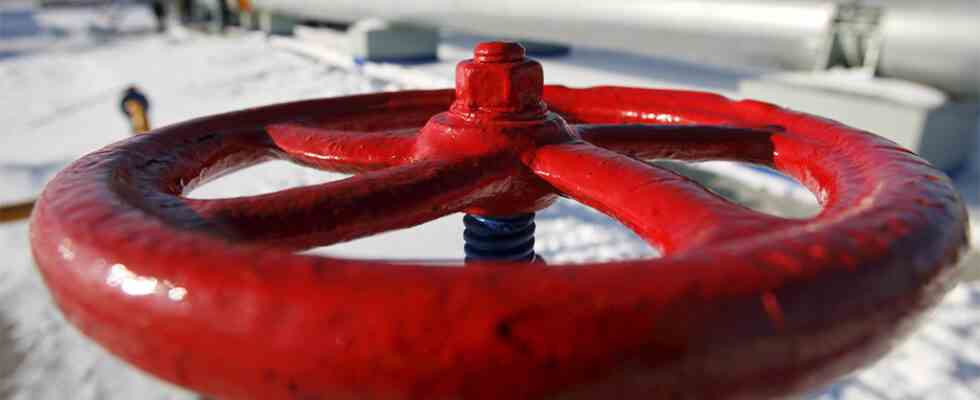Exclusive
Status: 04/21/2022 12:06 p.m
As Russia’s war of aggression against Ukraine intensifies, the German government is blocking a full energy embargo. monitor-Research shows that a gas embargo would be economically viable.
The EU has transferred almost 37 billion euros to Moscow for energy supplies since the start of the Russian war of aggression. Foreign currency that stabilizes the Russian economy and thus also fills the war chest. The ruble rate has long since returned to its pre-war level. Janis Kluge, Russia expert from the Stiftung Wissenschaft & Politik (SWP), says that the previous sanctions have not hit the center of Russian power: the energy complex. “That means we are, of course, financing the Russian budget with our energy imports, and by doing so we are also making it possible for this war to be waged,” said Kluge.
Nevertheless, the federal government has refused to impose an energy embargo since the beginning of the war – above all in order to continue purchasing Russian natural gas. Like the representatives of business and industry, she speaks of the threat of “mass unemployment”, the “end of the national economy” or “devastation and upheaval”. The “worst crisis since the end of the Second World War” is looming, said Martin Brudermüller, head of the chemical company BASF, in an interview recently.
Scenarios with no factual basis
But what numbers, facts and models are these scenarios based on? That ARD magazine monitor asked the Federal Ministry of Economics and numerous corporations and trade associations. Result: no one was able to provide concrete figures, instead vague forecasts and general statements.
BASF, for example, writes that a complete shutdown of the plants as a result of a gas embargo is “not very likely, but unfortunately cannot be ruled out either”. The industrial union for mining, chemistry and energy writes that the consequences are “unforeseeable and should therefore be averted at all costs”. And ThyssenKrupp refers to “internal experts (…) and discussions with customers and suppliers” on which the warnings are based.
“Horror scenarios are scaremongering”
For Prof. Alexander Kriwoluzky, macroeconomist at the German Institute for Economic Research, such statements by business and trade union representatives are largely “scaremongering that cannot be proven” because they are not based on models or scientific derivations. Leading experts and economic institutes have examined the effects of an embargo on the German economy in four different analyses.
The result: A slump in gross domestic product of 0.5 to a maximum of six percent is to be expected. The joint diagnosis of leading economic research institutes, which is prepared on behalf of the Ministry of Economic Affairs, expects German economic output to decline by 2.2 percent in 2023. And with an immediate embargo. “The effects are comparable to the corona pandemic,” says Kriwoluzky. But one is far from talking about mass unemployment.
An embargo would definitely lead to a recession in Germany, agrees Prof. Veronika Grimm, economist at the Leopoldina. But it would be “not an economic, complete catastrophe, but a situation that is very challenging, but manageable”. And with the right political measures: Obtaining more energy from other sources and reducing the influence on certain sectors of the economy within Germany with company aid and short-time work benefits.
Aid package from the federal government – a gift for Putin?
In fact, the federal government recently decided on an aid package: a “protective shield for war-affected companies”. One measure included: companies should receive a direct subsidy for high energy costs. The measures are limited in time and targeted, as the Ministry of Economic Affairs writes. “It’s like putting out a fire with gasoline,” says Grimm, speaking of a false incentive. This would not save companies maximum energy, but this would be urgently needed to free us from dependence on Putin and Russian energies.
For Moritz Schularick, Professor of Economics at the University of Bonn, the financial grants are going in the wrong direction. “Everything that slows down the rapid adjustment of German industry to this new geoeconomic, geopolitical situation, including this protective shield, is counterproductive in every respect and helps Putin.”

